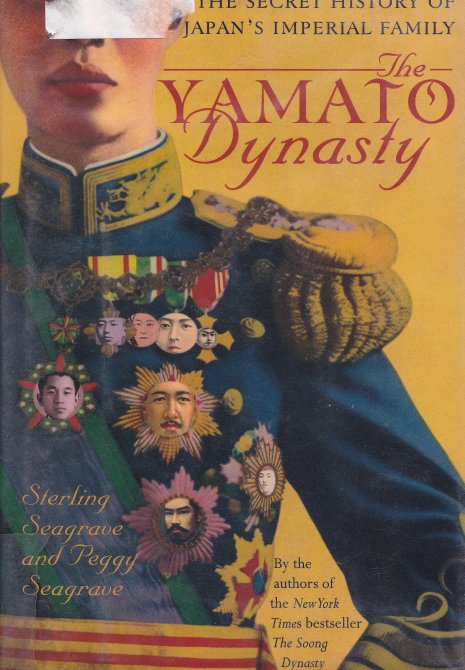
The Yamato Dynasty

This is a book about the Japanese Emperors that can after Emperor Meiji, mainly focusing on Hirohito and his role in World War II. The main focus of the book is on how Hirohito escaped ever being charged or tried for being a war criminal, and how the U.S. was behind this movement.
The book starts out noting that 1.5 million Japanese had died in combat. 8 million civilians were killed or wounded. 2.5 million homes were destroyed or damaged. 100,000 people were killed in the firebombing of Japan that took place in a single night.
After the end of the war MacArthur went to Japan to head the occupation program. The book notes that 'there was no certainty that fighting would not flare up again.' MacArthur's own presidential ambitions are also discussed.
There was basically a formal program set up to distance Hirohito from what happened during the war, and to prevent anyone from charging him with anything, trying him, or executing him. He was not to be held responsible for anything that happened at all.
The book does go briefly into the founding of the dynasty and its history, but only briefly. Space is given to how the concept that the Emperor was divine was determined and used to further the war effort.
There's also a lot of discussion about something rarely discussed in other war books, and that is Japan's role in looting the countries it invaded, carrying out a looting program that dwarfed the German one, and how those who did the looting were able to hide it, avoid prosecution, and use that loot to help rebuild Japan after the war and line their own pockets at the same time.
Hirohito's history is covered from when he was born, grew up, assumed the throne, and led the country during the war.
The great earthquake of 1923 is covered and how that was used to start rumors against Koreans and how that led to the death of many of them and other 'malcontents.'
In 1925 universal male suffrage was given, but the Peace Preservation law was also passed making it a crime punishable by death to criticize the Emperor. In 1928 it was modified to make speaking against the government a crime, which set up the military for an unrivaled of the entire country.
The book shows how some of the Imperial line were directly involved in war atrocities, but escaped while other men took the fall for what they did.
In relation to the attack on Pearl Harbor, the author says that 'Evidence is emerging that political and military leaders in Britain and American knew precise details in advance and allowed the attack to proceed.' Churchill wanted to draw the U.S. into the war so they would help the British against the Germans.
The economic side is again covered when the author discusses the looting of conquered countries. 'Loot and plunder became the only way Japan could stay afloat and continue to finance the war.'
Right after the surrender lots of Japanese documents were burned, arms were hidden, soldiers changed into farmers clothes, and loot (including drugs) continued to be hidden. How pressure was put on would-be witnesses and how facts were changed to protect the Emperor and the Imperial line are also discussed in detail.
Discussed also is the role of big U.S. corporations in Japan before the war, and how they made major profits in Japan right after the war. This, along with the side-stepping of the issue of responsibility, are tied in to how Japan managed to actually change very little fundamentally, and how the Japanese extreme right-wing still holds so much influence today. The role of a corrupt Japanese political system and its relation to all of this is also gone into in considerable detail.
The book gives the reader a whole new view of the greedy role of American corporations, and the political power the U.S. brought to bear to make sure Hirohito was not held accountable for his actions. A disturbing and extremely interesting book.
Main Index
Japan main page
Japanese-American Internment Camps index page
Japan and World War II index page
|